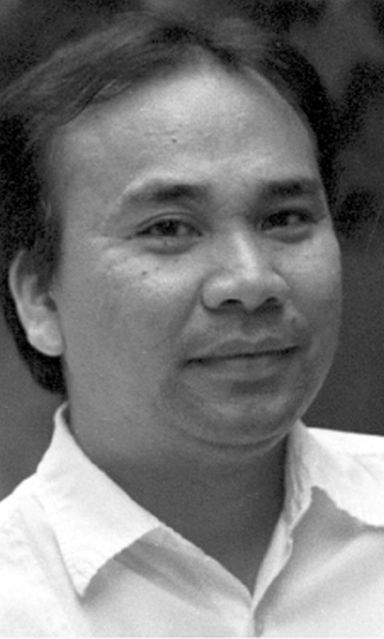
BERSALES
So much has been written about the pros and cons of martial law in Mindanao, most especially why it is mostly people in Luzon who are complaining while those in the south are not.
I was with my colleagues at the University of San Carlos in New York when the siege of Marawi unfolded and when martial law was imposed. In fact, we were at the airport in Manila on the very morning that President Rodrigo Duterte’s party was departing for Russia.
In a sense, the distance helped me get the kind of perspective one needs when dealing with an issue like Mindanao. First off, some disclosure is in order: I was born in Pagadian City, Zamboanga del Sur, of parents uprooted from Cebu and transplanted to Mindanao in their early years. I experienced firsthand the 1973 siege of the city by forces of the once might and as-yet unfragmented Moro National Liberation Front — an event I’ve written about in this space quite a few times. That siege forced my family to move to Cebu and, as life turns out, where I have been spending all of my adult life since.
But we still have our ancestral house in Pagadian and a few landholdings left to us by our late father, Atty. Eleazar D. Bersales. Ergo, despite the years living in the peace and quiet of Cebu, we still look forward to a time when Mindanao will really get back to the time of relative peace, right before the tumult of the ’70s so that we too can develop those landholdings and benefit from them.
But will it ever happen? Will developing Mindanao and investing in massive high-end infrastructure, like speed railways, entice investors, work?
There are those in Mindanao who believe that peace in Mindanao is but an illusion inasmuch as so much money has already been poured for decades there to nurture its economy but nothing good has emerged from it. I do not subscribe to this myopic view.
The proof against this are manifold and one need not look farther than Malaysia and Indonesia, two large archipelagic countries with majority populations that are Muslim and who have Christian communities in their midst and which have relatively progressive and developed economies better than ours.
So what ails Mindanao and why, despite billions already poured there, nothing seems to work?
The main culprit is corruption, especially among the many politicians there who have literally become warlords, running roughshod on their clans and constituents to ensure they deliver votes during every election. Manila politicians share the blame for this insidious corruption, turning the other way around as long as their lofty positions are ensured election after election. And so highways are reported complete and fully paved when they are in fact half done or worse. Hospitals are reported fully equipped with medicines, when the reality is that those millions of pesos of medicines go somewhere else to be repacked and resold. Much-needed textbooks are reported to have been delivered to the different public schools where only a receipt, indicating millions of pesos, change hands. And where state auditors squeal, they are either gunned down or get assigned elsewhere or they have no recourse but to keep quiet.
The result is billions and billions of pesos lost to corruption. The Ampatuans of Maguindanao are a classic example. Meanwhile, these corrupt politicians and their families grow rich, buy into local property, establish many business enterprises and control the flow of goods and services within their jurisdiction. And then they control anyone and everyone who wants to start business in their cities, districts or provinces.
Such is the tragedy that is Mindanao. And now we have a no-nonsense Mindanaoan who finally sits in Malacañang, mincing no words and unmindful of criticism from all quarters. I am sure President Duterte is keenly aware of this contradiction: so much natural resources on one single island and yet so many failed promises by every single one of those presidents before him, especially the one he replaced.
The Mindanao Rail is something that everyone in Mindanao — except perhaps for Islamic fundamentalists — is looking forward to see the light of day.
America’s economic might began and surged with her extensive railways network because trains can move people, goods and services faster than all the secondhand trucks now running the highways of Mindanao combined. And if the network is extensive enough, these trains will reach every productive corner of Mindanao. Rails have always been a precursor for progress. But their construction and development is also a pricey one, open to corruption.
With Duterte at the helm, let us hope corruption will finally end so that peace and progress will finally happen in Mindanao and Islamic fundamentalists will have no ready followers among the poor to recruit.
Disclaimer: The comments uploaded on this site do not necessarily represent or reflect the views of management and owner of Cebudailynews. We reserve the right to exclude comments that we deem to be inconsistent with our editorial standards.




